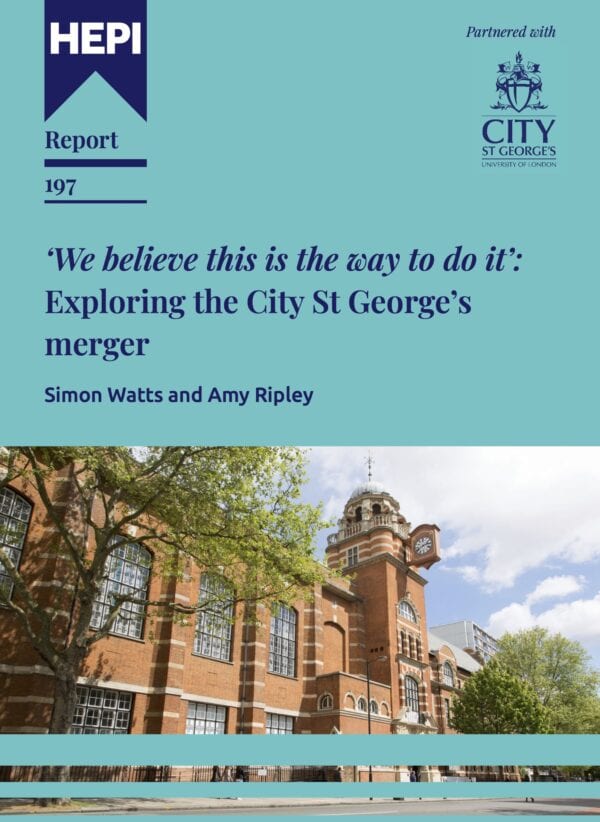Levelling up the student experience
This HEPI guest blog was kindly authored by Cheryl Watson, VP of Education, UK at TechnologyOne.
While you are here, don’t forget to complete the survey on HEPI’s work. It will only take a few minutes and will help inform our future output. You can access the survey here.
Why we need to redesign student life around inclusion, access and equity
There’s no such thing as a typical student anymore. Today’s students are more diverse, stretched, and balancing financial pressures alongside study, care, and work responsibilities.
Yet many university systems still assume a narrow definition of who students are and how they live. As participation widens, institutions face a challenge: equity of access no longer guarantees equity of experience.
That’s where the Minimum Income Standards for Students research comes in.
Today’s students are not a one-size-fits-all
Universities have made real progress in widening access, but many aspects of student life are still designed around an outdated, one-size-fits-all model. For non-traditional students, the cost of that mismatch can be significant.
The Minimum Income Standard for Students 2024 (MISS24) report, developed by the Centre for Research in Social Policy (CRSP) at Loughborough University and published by HEPI and TechnologyOne, revealed that students under financial stress or managing additional responsibilities are more likely to struggle with engagement, persistence, and success.
The myth of the ‘traditional student experience’
The image of the ‘traditional’ student – financially supported, living on campus, and attending in person full-time – is increasingly out of step with reality. According to HEPI and Advance HE, 68% of students now work part-time to support themselves.
Others commute long distances, care for family members or study while managing health conditions. Yet academic and campus life often centres around those with time, money and flexibility, creating barriers for others.
Who are non-traditional students?
‘Non-traditional’ students are those whose lives don’t neatly align with the structures of traditional university study. This includes:
- commuters who travel in from home each day, often at significant personal cost;
- students from low-income households, for whom maintenance loans fall well short;
- mature-age students, carers, or those with parenting responsibilities;
- students living with disabilities or chronic health conditions; and
- first-in-family students, navigating systems and expectations without precedent.
These students comprise a significant portion of the sector. Meeting their needs should not be seen as an add-on, but as essential to building a fairer system.
The hidden barriers reshaping student life
Rigid timetables, inflexible systems, and unclear support structures can turn everyday aspects of student life into barriers. For students juggling work, care or long commutes, these barriers can add stress and negatively impact attendance, engagement, and overall well-being.
The people I know that commute, it’s mostly because they couldn’t afford to live or it would be way more expensive for them to live in student accommodation because they live so close.
I worked with someone, and she’d be in Uni all day from 9 am to 5 pm because she might have something that started at 9am and then finished at 6pm, because the timetable is not synced up.
Accommodation contracts and payment schedules often clash with student loan timings, leaving some students short on essentials or reliant on overdrafts and food banks. These are not isolated challenges but systemic issues that call for sector-wide solutions.
Building a fairer future for higher education
To build a fairer, more inclusive higher education system, universities and policymakers need clear evidence on what effective support looks like.
The upcoming Minimum Income Standard for Students 2025 (MISS25) report – a follow-up to MISS24 with HEPI – will provide that evidence, offering the most detailed picture yet of the true cost of participating in university life for first-year students living in purpose-built accommodation.
It will help the sector understand what it takes for students to stay afloat, take part fully, and succeed, particularly for those managing disabilities, low incomes, or additional responsibilities.
What students say they need to succeed
Focus groups from the MISS25 research highlight that students need time, flexibility and support that reflects their real lives. Financial pressure and scheduling conflicts can limit their ability to join societies, attend events, or fully participate in academic life.
‘We just need time and space to breathe’
Many students described university life as overwhelming, mostly because of how tightly packed, inflexible, and unsupported it can feel. Rigid schedules and disconnected systems create extra strain, especially for students who need to manage work, transport, or health appointments.
As the report will show, even students receiving the maximum maintenance loan must work long hours every week just to meet a minimum standard of living.
‘It’s hard to join in when you’re just trying to survive’
Participating in societies, sports, and social life is a vital part of the university experience. But for many, the rising cost of living means opting out is the only option.
This impacts wellbeing, confidence, and the chance to build networks that support success.
These challenges are often most acute in the first year, when students are building social connections and learning to navigate university systems for the first time.
‘Uni should be built around real students, not ideal ones’
Students shared how university systems don’t match their realities. Timetables that assume all-day availability, unclear payment schedules, and expectations around placements can all create friction for students managing extra responsibilities or financial pressures.
To support success, universities need to understand and address these gaps.
Why inclusive design must be the next priority
The barriers many students face are design challenges, not a matter of individual resilience. Inclusive design means creating flexible timetables, accessible learning environments, and clear, consistent support structures that work for all learners.
When these systems are in place, students can focus on learning and contributing to their communities, rather than constantly navigating obstacles.
Rethinking support beyond financial aid
While financial support is still crucial, students need systems that align with their lives to reduce unnecessary stress and uncertainty. Predictable processes, transparent communication, and flexible learning options are all part of enabling participation and success.
Explore the full MISS25 report
The upcoming Minimum Income Standard for Students 2025 report (MISS25) offers a data-driven roadmap for a more inclusive student experience. Sign up to receive a copy of the report to explore the findings and discover how better insight can drive better outcomes across your institution.
Related article: The hidden cost of learning: how financial strain Is reshaping student life
TechnologyOne is a Partner of HEPI. TechnologyOne is a global Software as a Service (SaaS) company. Their enterprise SaaS solution transforms business and makes life simple for universities by providing powerful, deeply integrated enterprise software that is incredibly easy to use. The company takes complete responsibility to market, sell, implement, support and run solutions for customers, which reduce time, cost and risk.







Comments
Dr Paul Vincent Smith says:
Writing this almost involuntarily: wouldn’t it be nice if there was a minimum student income in the form of, say, a means-tested grant, meaning that many hours of paid work were not necessary and conventional timetables could be maintained?
Reply
Paul Wiltshire says:
This isn’t journalism. It is advertising.
Reply
FAJ Team says:
A timely and impactful reflection—today’s students are far more diverse, balancing study with work, caregiving, and financial pressures. Simply expanding access is no longer enough—universities must ensure equitable experiences for all. Institutions should rethink student life design to prioritize inclusion, flexibility, and support across the full spectrum of student realities. Excited to see what strategies Cheryl Watson recommends next.
Reply
Add comment